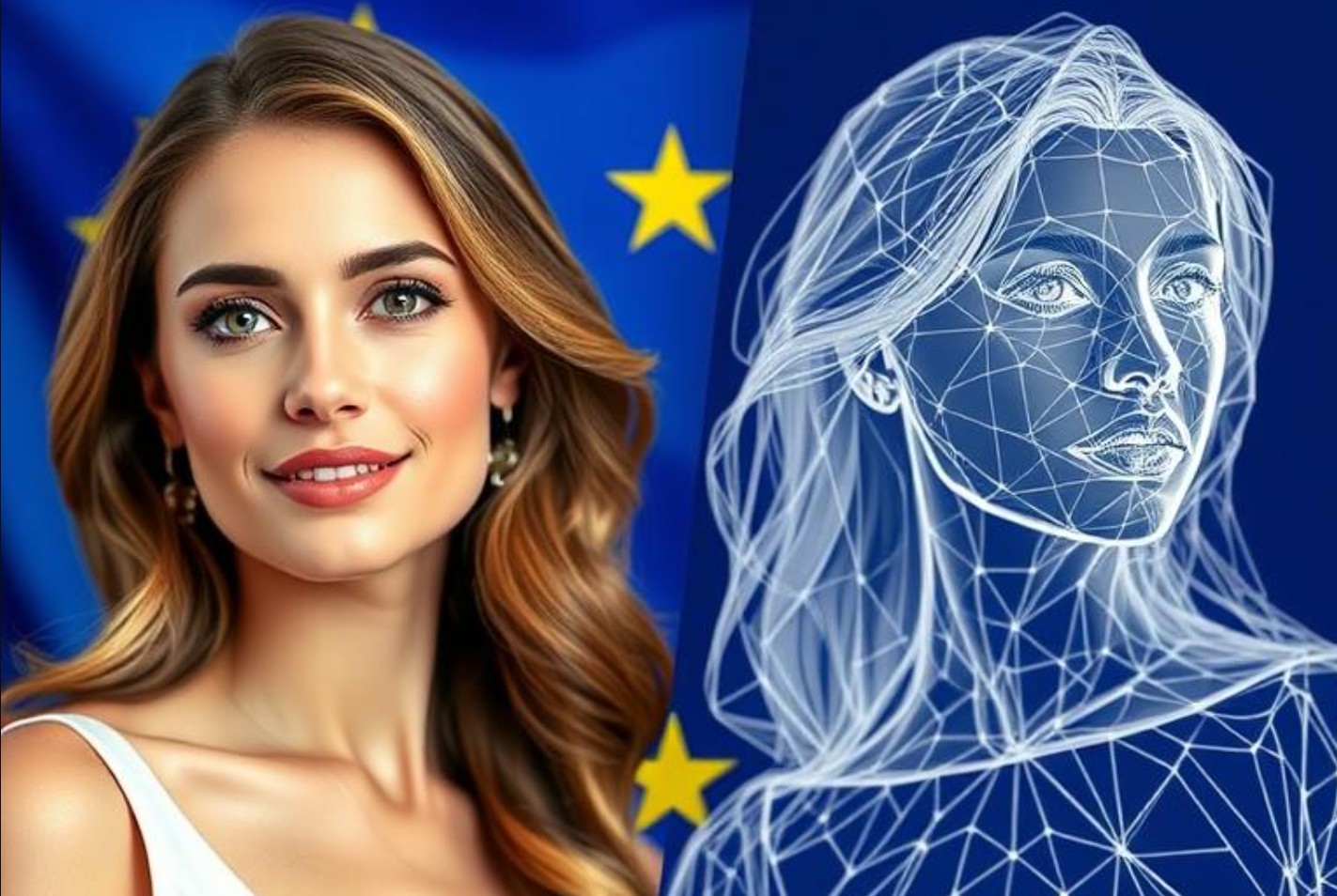
Le falsificazioni generate dall’intelligenza artificiale hanno ormai varcato la soglia tra realtà e fantasia. Sempre più credibili e insidiose, queste contraffazioni video e audio stanno assumendo una pericolosità crescente. Le loro potenzialità di nuocere sono evidenti: dalle campagne diffamatorie a sfondo politico alle imitazioni di personaggi famosi, senza tralasciare le truffe ai danni di imprese e singoli individui, tali tecnologie sono in grado di minare la credibilità delle informazioni che percepiamo sui canali online.
I legislatori danesi hanno compiuto un passo importante introducendo una normativa che si occupa direttamente di questa minaccia in aumento. La recente normativa concede agli individui il diritto di proprietà legale sul proprio volto e sulla propria voce, dichiarando illegale la creazione di deepfake dannosi. Questo provvedimento segna un progresso importante, stabilendo un modello per altri paesi dell’Unione Europea e mettendo in evidenza l’indispensabile esigenza di una strategia legale unificata per contrastare l’utilizzo distorto dell’Intelligenza Artificiale.
Anna Collard, Senior Vice President of Content Strategy ed Evangelist di KnowBe4, ha dichiarato: “I legislatori danesi stanno dando il buon esempio: è urgentemente necessaria una protezione legale contro i deepfake. Restituendo alle persone la proprietà del proprio volto e della propria voce, la Danimarca sta compiendo un passo importante nella lotta contro l’abuso dell’IA. Ma la legislazione da sola non basta. Le persone devono imparare a riconoscere i segnali dei deepfake. Oltre ai governi, anche gli istituti scolastici e le aziende tecnologiche devono investire nella resilienza digitale”.
La natura del problema è estremamente individuale e riguarda l’identità personale. Tecnologie come il deepfake sono ormai in grado di replicare in modo credibile caratteristiche distintive come la tua voce e il tuo viso, che sono unici quanto le impronte digitali.
In assenza di adeguate misure di sicurezza, il rischio è che chiunque possa essere oggetto di imitazioni digitali a scopo fraudolento, ad esempio attraverso false chiamate telefoniche attribuite al CEO per truffare le aziende, o ancora diffondendo messaggi politici falsi. La legge danese riconosce questo rischio trattando la voce e l’aspetto del volto come beni personali, legalmente protetti dallo sfruttamento. Si tratta di un limite giuridico indispensabile in un panorama in rapida evoluzione, in cui i contenuti generati dall’intelligenza artificiale stanno diventando quasi indistinguibili dalle registrazioni autentiche.
Secondo Collard, la legislazione, pur essendo fondamentale, rappresenta solo una parte della soluzione. Infatti, le tecnologie per rilevare i falsi sono ancora in via di sviluppo e non tutti posseggono le risorse o le competenze adeguate per riconoscere i contenuti contraffatti. Di conseguenza, man mano che i deepfake si fanno più accessibili e credibili, è il pubblico a dover sostenere il peso di distinguere tra realtà e finzione.
Ecco perché l’istruzione è fondamentale quanto la regolamentazione. Campagne di sensibilizzazione, programmi di alfabetizzazione digitale nelle scuole e sessioni di formazione sul posto di lavoro svolgono tutti un ruolo chiave nel rafforzare la resilienza, ha continuato. “Si tratta di insegnare alle persone a riconoscere l’inganno narrativo e a sviluppare la capacità di riconoscere la manipolazione quando si verifica”.
In definitiva, la lotta ai deepfake (come quella del phishing, persa alla grande) richiederà un approccio articolato. I governi devono definire i quadri giuridici, le aziende tecnologiche devono sviluppare strumenti di rilevamento più efficaci e dare priorità allo sviluppo responsabile dell’intelligenza artificiale, e i cittadini devono essere messi in grado di orientarsi in un mondo online in cui vedere non significa più necessariamente credere.
La Danimarca ha fatto una prima mossa coraggiosa. Ora vediamo se l’Europa seguirà l’esempio, integrando le tutele legali con gli strumenti, la formazione e la consapevolezza necessari per difendersi da questo inganno digitale.
Ti è piaciuto questo articolo? Ne stiamo discutendo nella nostra Community su LinkedIn, Facebook e Instagram. Seguici anche su Google News, per ricevere aggiornamenti quotidiani sulla sicurezza informatica o Scrivici se desideri segnalarci notizie, approfondimenti o contributi da pubblicare.

 Cybercrime
CybercrimeLe autorità tedesche hanno recentemente lanciato un avviso riguardante una sofisticata campagna di phishing che prende di mira gli utenti di Signal in Germania e nel resto d’Europa. L’attacco si concentra su profili specifici, tra…
 Innovazione
InnovazioneL’evoluzione dell’Intelligenza Artificiale ha superato una nuova, inquietante frontiera. Se fino a ieri parlavamo di algoritmi confinati dietro uno schermo, oggi ci troviamo di fronte al concetto di “Meatspace Layer”: un’infrastruttura dove le macchine non…
 Cybercrime
CybercrimeNegli ultimi anni, la sicurezza delle reti ha affrontato minacce sempre più sofisticate, capaci di aggirare le difese tradizionali e di penetrare negli strati più profondi delle infrastrutture. Un’analisi recente ha portato alla luce uno…
 Vulnerabilità
VulnerabilitàNegli ultimi tempi, la piattaforma di automazione n8n sta affrontando una serie crescente di bug di sicurezza. n8n è una piattaforma di automazione che trasforma task complessi in operazioni semplici e veloci. Con pochi click…
 Innovazione
InnovazioneArticolo scritto con la collaborazione di Giovanni Pollola. Per anni, “IA a bordo dei satelliti” serviva soprattutto a “ripulire” i dati: meno rumore nelle immagini e nei dati acquisiti attraverso i vari payload multisensoriali, meno…